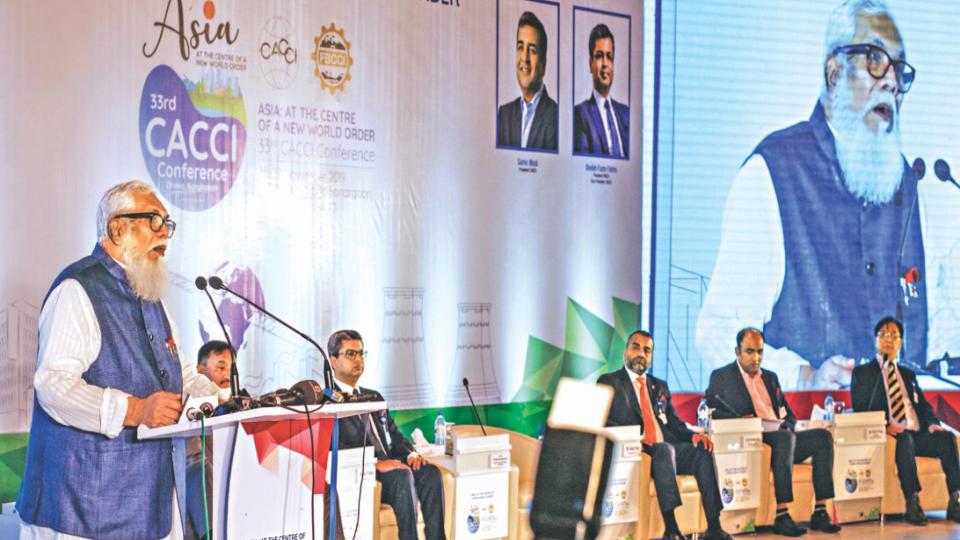APAC entrepreneurs to invest in hospitality sector of Bangladesh

Bangladesh has immense potential in hospitality management as tourism and hospitality services are growing on a par with the economy. Moreover, necessary training in hospitality management can enable the country’s abundant manpower to offer top-notch services both at home and abroad.
Salman F Rahman, Prime Minister’s Adviser on Private Industry and Investment said this at a discussion on discovering business opportunities through Confederation of Asia-Pacific Chambers of Commerce and Industry (CACCI) being held at Pan Pacific Sonargaon Hotel Dhaka from November 26.
The discussion was a part of the two-day long 33rd Confederation of Asia-Pacific Chambers of Commerce and Industry (CACCI) conference organised in association with the Federation of Bangladesh Chambers of Commerce and Industry (FBCCI).
The adviser asked the entrepreneurs of the CACCI member countries to invest in Bangladesh’s hospitality sector utilising its full potential.
Brian O’Gallagher, Deputy Chief Executive Officer of Australia’s Chamber of Commerce Northern Territory mentioned that some of his country’s companies are already involved with young minds for various works while he expressed his interest in training Bangladesh’s manpower in hospitality management.
Sheikh Fazle Fahim, President of FBCCI delivered the inaugural speech. In his speech, he informed that Bangladesh’s economy was stable and its macro-economic growth was in an upward trajectory.
Growth in trade, investment, new technologies, innovation and reforms is the driving force behind the Asia-Pacific region being the world’s largest and fastest developing economy currently, said Samir Modi, President of CACCI. Ensuring international and regional collaboration remains a vital comprehensive goal to establish strong economic integration of the region, he added.
The conference is being attended by over 300 business delegates including representatives of leading national commerce chambers, business leaders and policymakers from 27 Asia Pacific countries.
Prominent speakers ranging from leading economists and business practitioners to regional policymakers are also attending the conference to assess key challenges and issues.
